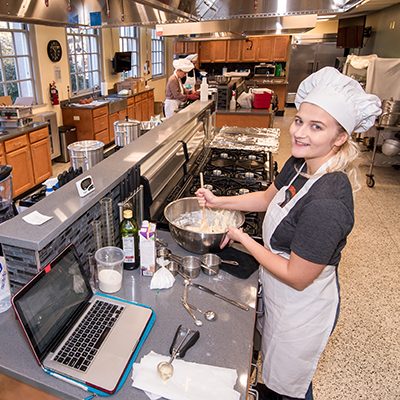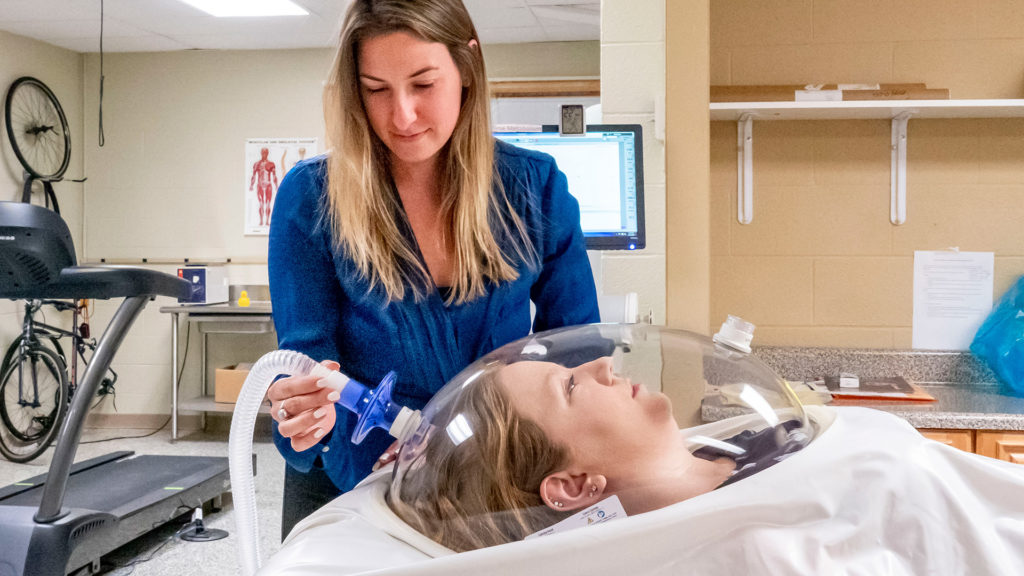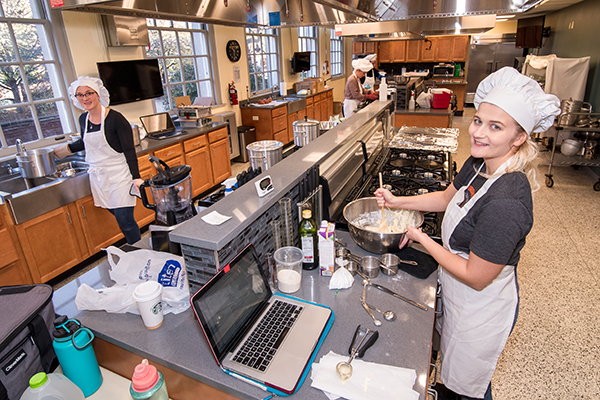

Become an Authority on Nutrition
With a Nutrition and Dietetics degree, you’ll be prepared to pursue the RDN credential and work in health care, public health, education, research or private practice.
Tuition & Fees
45 credits
$670 per-credit
$3,010 Graduate Assistantships available per semester
(enrolled in a minimum of 6 credits per semester)
Length & Format
2 years
to graduate, if full-time
Hybrid
program delivery
About The School of Health Sciences
Russell Sage College is the region’s premier institution for health professions, offering the most comprehensive range of undergraduate and graduate programs.
Specialties in our Nutrition & Dietetics master’s program
A Russell Sage nutrition degree means something in the field:
We are a top-three producer of nutrition degrees and certificates in New York state. We are the ONLY accredited nutrition program in New York’s greater Capital Region. Many employers look for a Sage-educated RDN above all others.
Best Class Ever: Nutrition and Dietetics: Farm to Family Wheels
Leah Waldron ’25
Nutrition & Dietetics, M.S.
Course Requirements
Credits and Completion
This is a 45-credit course of study that combines graduate-level ACEND-accredited Didactic Program in Dietetics (DPD) courses with master’s courses.
Full-time students may complete the program in as few as three semesters, while part-time students may complete the program at their own pace. Additional prerequisite courses may apply.

Our nutrition and dietetics master’s comes with a deep, Russell Sage-level of support from an assigned faculty advisor who works with you to ensure your success.
Sonya Hauser, Ph.D. “We get to deliver a rigorous, competitive science-based Nutrition and Dietetics degree, but we get to do it in small classes.””
Associate Professor of Nutrition Science

Your Future Career with a Master’s in Nutrition & Dietetics
Professionals with a Nutrition and Dietetics degree pursue Dietetic Internships and the RDN credential and work in medical centers, sports nutrition and corporate wellness programs, community and public health settings, and universities and research settings.
Alumni of Sage’s Nutrition and Dietetics degree program work at Community Care Physicians, Cornell Cooperative Extension, hospitals and in New York State’s Women, Infants and Children programs.
Dietetic Internship Program
After completing your master’s in Nutrition and Dietetics, you’ll be eligible to apply for an accredited Dietetic Internship program. Many students go on to pursue Russell Sage College’s Dietetic Internship program.
You’ll get a minimum of 1,200 hours of supervised practice, preparing you to take the next step: passing the CDR’s dietetic registration exam.
Master’s in Nutrition Student Spotlights
Meet the successful students and alumni of our nutrition and dietetics master’s program.
Meet Katie Cusack, a journalist and soon-to-be Registered Dietitian Nutritionist. In this Q&A, discover how Russell Sage College’s M.S. in …
“It’s a little bit of a story,” said former business consultant and future registered dietitian Susannah Schools, when asked about …
When Rajvi Sheth started her graduate program at Sage and moved into her Troy apartment near campus, one of her …





